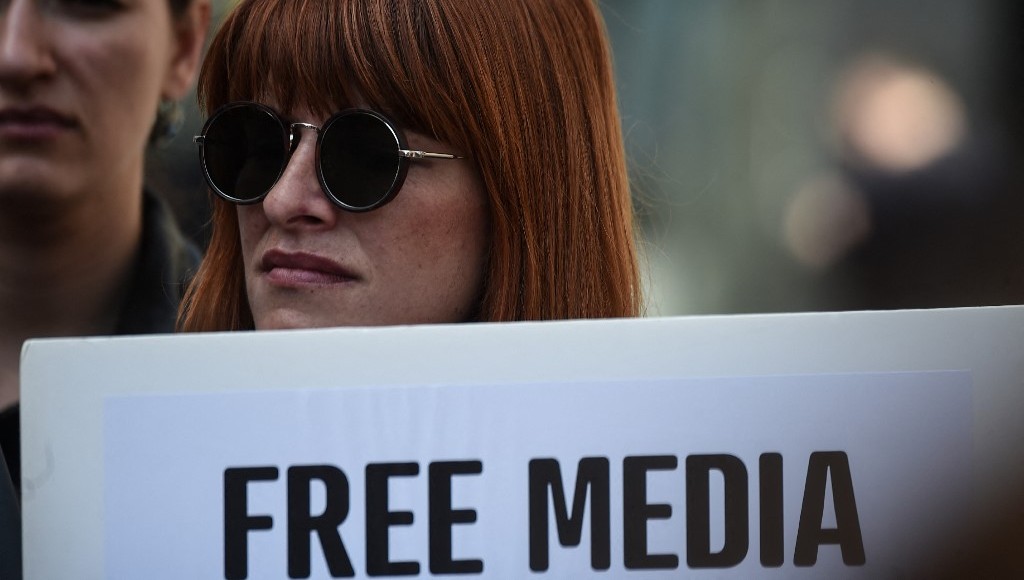A total of 168 journalists appeared at hearings in their trials in Turkey from April to June, according to a recent report prepared by the Expression Interrupted project, the Stockholm Center for Freedom reported.
The number of journalists in prison went from 56 to 67 in the last three months. Of the 116 hearings that took place, most involved terrorism-related charges, which were followed by charges of insulting Turkish President Recep Tayyip Erdogan.
The report is based on data obtained from trials and media monitoring work carried out by Expression Interrupted.
While nine journalists were the subject of investigations in this period, 38 were detained. At least nine journalists were the victims of police violence, attacks and threats, and six journalists were beaten by civilians.
Turkey’s broadcasting regulator, the Radio and Television Supreme Council (RTÜK), continued to impose penalties on television stations critical of the Turkish government. In the first six months of this year, RTÜK penalized 30 critical channels, while it issued only three penalties for pro-government stations.
A new law proposed by the Justice and Development Party (AKP) government and its ally, the Nationalist Movement Party (MHP), and approved in committee in June was also found concerning in the report.
According to the AKP and MHP, the bill was drafted to “fight disinformation and fake news” and will pave the way for sanctions regarding social media posts that are decided by the courts to have been produced for the purpose of fake news and disinformation.
The legislation foresees prison sentences of between one and three years for anyone who publicly disseminates false information regarding internal or external security, public order and the general health of the country with the aim of creating anxiety, fear or panic among the public or disturbing the public peace.
If the crime was committed by hiding the real identity of the perpetrator or within the framework of the activities of an outlawed organization, the penalties will be increased by half.
Content that constitutes a “crime” against the activities and personnel of the National Intelligence Organization (MİT) would be accepted as a reason for arrest, according to the new legislation, which would also make it easier to block access to broadcasters.
In a joint statement journalist associations said the law was a “dark stain” on Turkish journalism and called on the public to show solidarity and demonstrate along with journalists.
Legal experts also expressed concern about the new law, saying anyone sharing critical content or information that contradicts official reports could face prosecution.
The Committee to Protect Journalists (CPJ) said earlier in June that Turkey would use the legislation as an extra tool to prosecute journalists.

